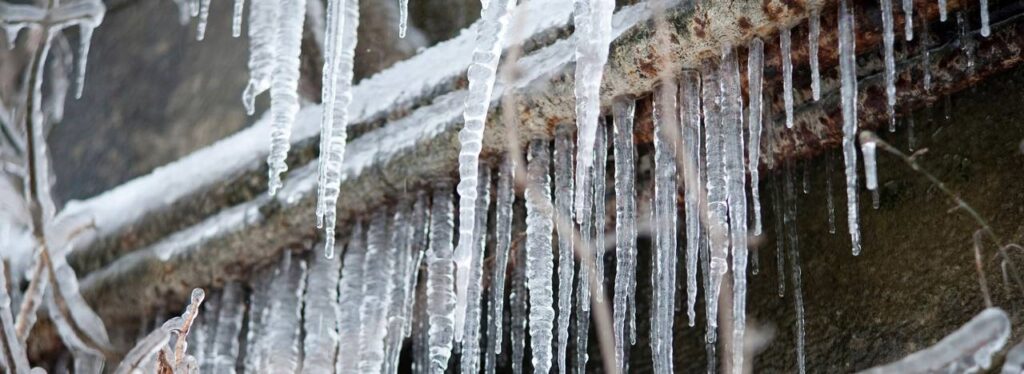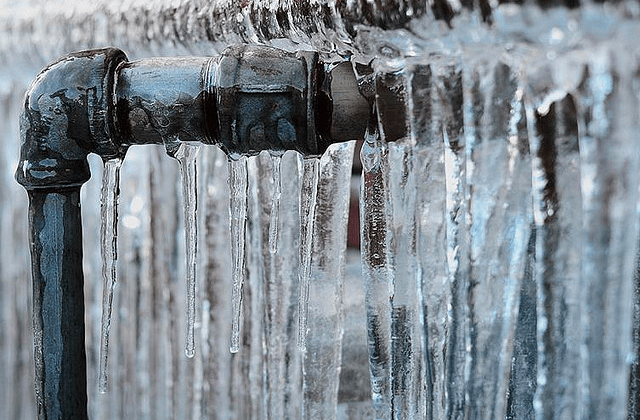Guidance for Avoiding Frozen Pipes in Winter: Expert Insights
Guidance for Avoiding Frozen Pipes in Winter: Expert Insights
Blog Article
The content following next about Prevent Frozen Pipes is pretty much stimulating. Check it out for your own benefit and see what you think of it.

Winter can ruin your pipes, especially by freezing pipes. Here's how to stop it from taking place and what to do if it does.
Intro
As temperatures drop, the threat of icy pipes increases, possibly causing costly repairs and water damages. Understanding just how to avoid frozen pipelines is essential for home owners in chilly environments.
Comprehending Icy Pipes
What triggers pipelines to freeze?
Pipelines ice up when subjected to temperature levels below 32 ° F (0 ° C) for prolonged durations. As water inside the pipelines freezes, it broadens, taxing the pipeline walls and potentially creating them to burst.
Dangers and damages
Frozen pipes can cause supply of water disturbances, building damage, and pricey fixings. Burst pipes can flooding homes and trigger substantial architectural damages.
Signs of Frozen Water Lines
Determining icy pipes early can stop them from bursting.
Just how to recognize icy pipes
Look for lowered water circulation from faucets, uncommon odors or noises from pipes, and noticeable frost on exposed pipelines.
Prevention Tips
Insulating vulnerable pipelines
Wrap pipelines in insulation sleeves or use warmth tape to safeguard them from freezing temperature levels. Focus on pipelines in unheated or exterior areas of the home.
Home heating techniques
Keep indoor spaces properly heated up, specifically areas with plumbing. Open up cabinet doors to allow warm air to flow around pipelines under sinks.
Safeguarding Exterior Pipes
Yard hoses and exterior taps
Separate and drain pipes yard hoses prior to winter. Set up frost-proof faucets or cover outside taps with protected caps.
What to Do If Your Pipelines Freeze
Immediate actions to take
If you believe icy pipes, maintain taps available to ease stress as the ice melts. Make use of a hairdryer or towels taken in warm water to thaw pipelines slowly.
Long-Term Solutions
Structural changes
Take into consideration rerouting pipes away from outside walls or unheated locations. Add extra insulation to attic rooms, basements, and crawl spaces.
Updating insulation
Purchase premium insulation for pipes, attic rooms, and walls. Correct insulation helps preserve consistent temperature levels and reduces the danger of icy pipelines.
Final thought
Preventing frozen pipelines calls for proactive procedures and fast responses. By understanding the causes, indicators, and safety nets, homeowners can safeguard their plumbing during cold weather.
Helpful Tips to Prevent Frozen Pipes this Winter
UNDERSTANDING THE BASICS: WHY PIPES FREEZE AND WHY IT’S A PROBLEM
Water freezing inside pipes is common during the winter months, but understanding why pipes freeze, and the potential problems it can cause is crucial in preventing such incidents. This section will delve into the basics of why pipes freeze and the associated problems that may arise.
THE SCIENCE BEHIND FROZEN PIPES
When water reaches freezing temperatures, it undergoes a physical transformation and solidifies into ice. This expansion of water as it freezes is the primary reason pipes can burst. As the water inside the pipe freezes, it expands, creating immense pressure on the walls. If the pressure becomes too great, the pipe can crack or rupture, leading to leaks and water damage.
FACTORS THAT CONTRIBUTE TO PIPE FREEZING
Low Temperatures: Extremely cold weather, especially below freezing, increases the risk of pipes freezing. Uninsulated or Poorly Insulated Pipes: Pipes located in unheated areas, such as basements, crawl spaces, or attics, are more prone to freezing. Insufficient insulation or lack of insulation altogether exacerbates the problem. Exterior Wall Exposure: Pipes running along exterior walls are susceptible to freezing as they encounter colder temperatures outside. Lack of Heating or Temperature Regulation: Inadequate heating or inconsistent temperature control in your home can contribute to frozen pipes. PROBLEMS CAUSED BY FROZEN PIPES
- Pipe Bursting: As mentioned earlier, the expansion of water as it freezes can cause pipes to burst, resulting in significant water damage.
- Water Damage: When pipes burst, it can lead to flooding and water damage to your property, including walls, ceilings, flooring, and personal belongings.
- Structural Damage: Prolonged exposure to water from burst pipes can compromise the structural integrity of your home, leading to costly repairs.
- Mold and Mildew Growth: Excess moisture from water damage can create a favorable environment for mold and mildew growth, posing health risks to occupants.
- Disrupted Water Supply: Frozen pipes can also result in a complete or partial loss of water supply until the issue is resolved.
WHY CERTAIN PIPES ARE MORE PRONE TO FREEZING
- Location: Pipes located in unheated or poorly insulated areas, such as basements, crawl spaces, attics, or exterior walls, are at higher risk of freezing.
- Exterior Pipes: Outdoor pipes, such as those used for irrigation or exposed plumbing, are particularly vulnerable to freezing as they are directly exposed to the elements.
- Supply Lines: Pipes that carry water from the main water supply into your home, including the main water line, are critical to protect as freezing in these lines can affect your entire plumbing system.
- Underground Pipes: Pipes buried underground, such as those connected to sprinkler systems or outdoor faucets, can be susceptible to freezing if not properly insulated.
https://busybusy.com/blog/helpful-tips-to-prevent-frozen-pipes-this-winter/

As a fervent person who reads on Winter Plumbing Precautions: Preventing Frozen Pipes, I assumed sharing that short article was a great idea. Enjoyed our content? Please share it. Let other people discover it. Thanks for your time. Return soon.
Set An Appointment Report this page